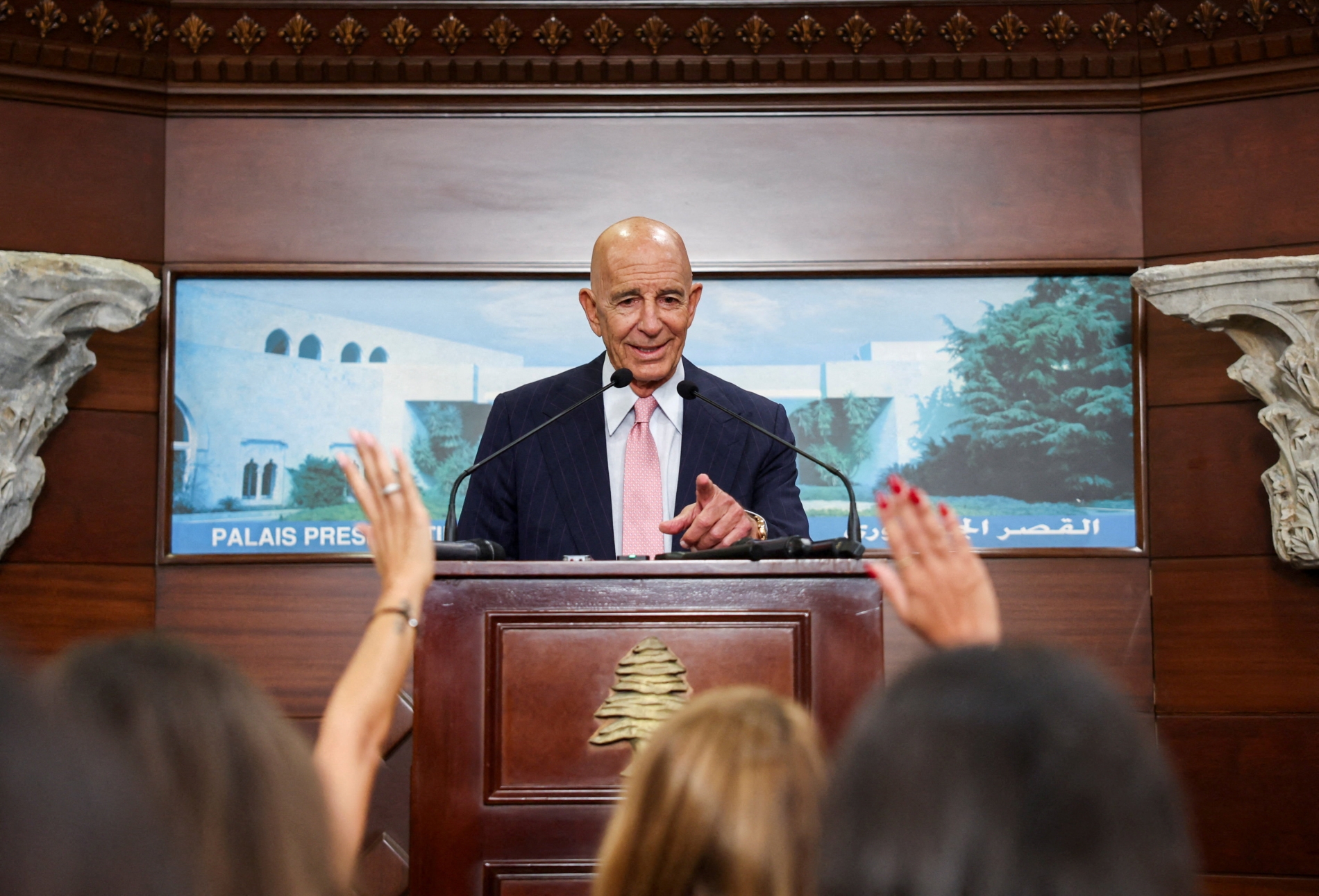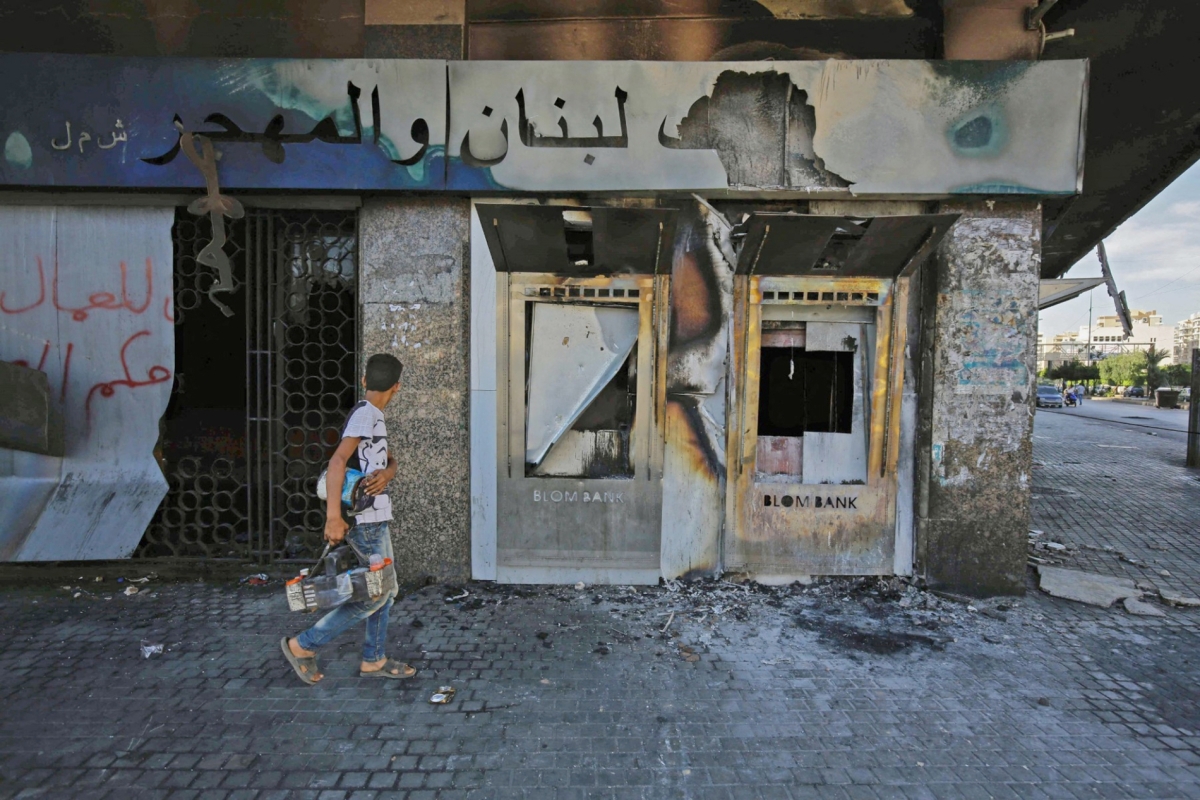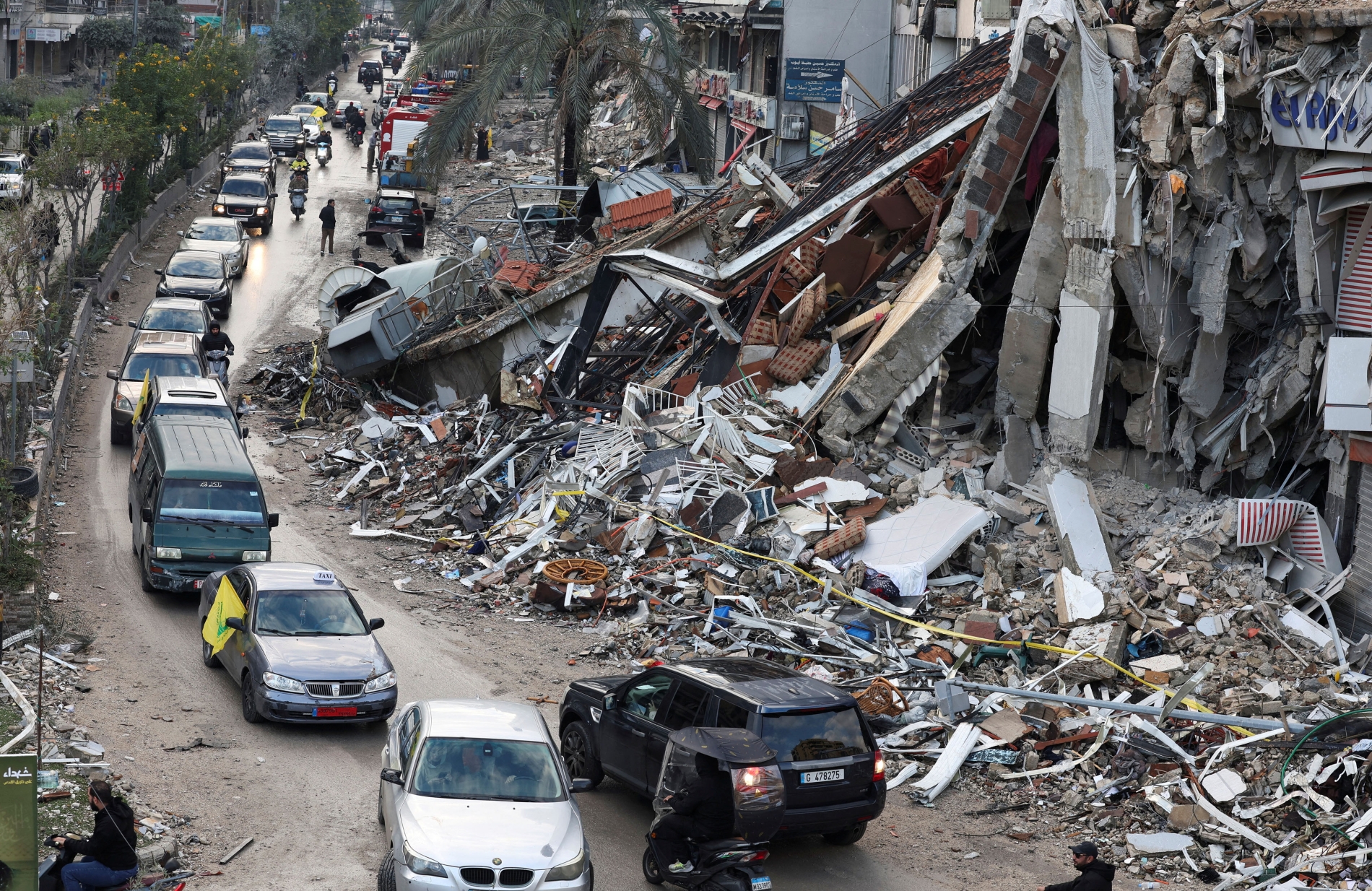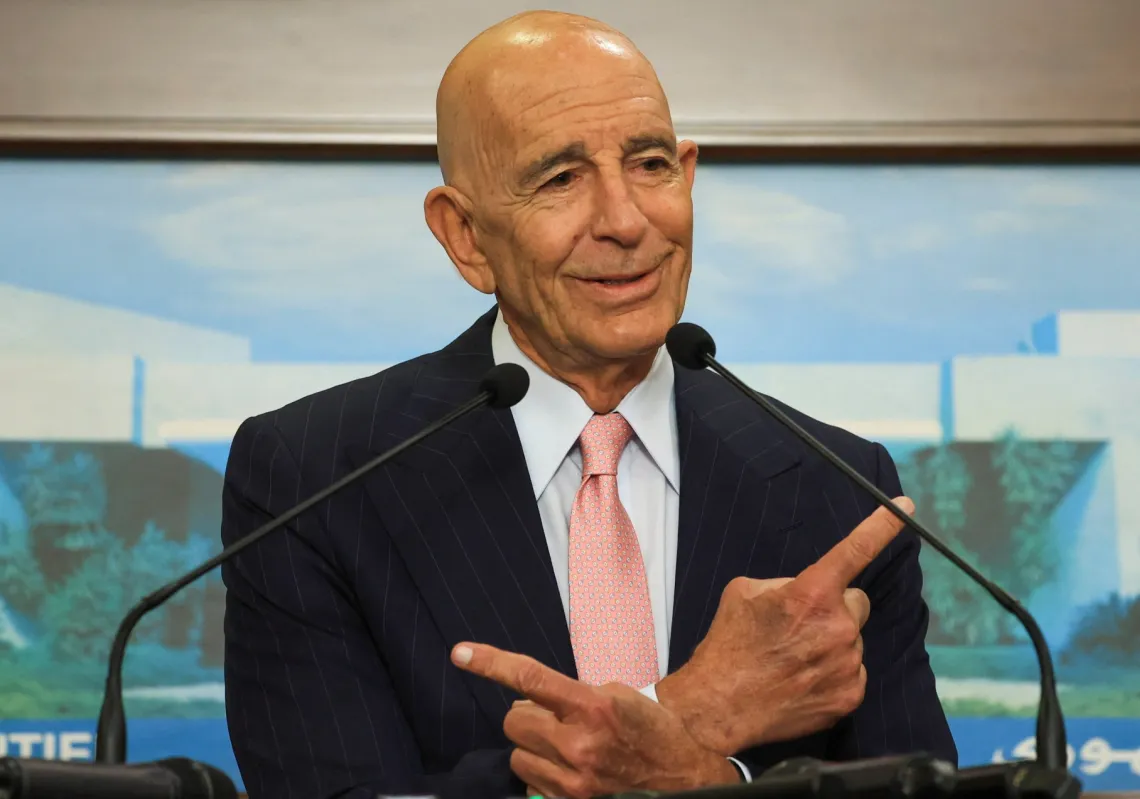These are big moments for Lebanon. Earlier this month, the cabinet voted to disarm armed groups like Hezbollah by the end of 2025, and the national army is expected to unveil its plan to do so in the coming days. If there is genuine progress, one of the first to congratulate the Lebanese will be the United States.
US President Donald Trump has tasked his friend Tom Barrack with helping Lebanon transition towards true statehood and full sovereignty over its territory. The idea is that this will act as a gateway to economic and investment prosperity, and that US support will help Lebanon achieve that goal. Barrack links prosperity and investment to the establishment of a capable, strong state that holds the reins of power.
Trump’s envoy visited Lebanon again this month. Al Majalla understands that the aim was to give further impetus towards ensuring that all weapons are placed exclusively in the hands of the state, after the cabinet decided to do so on 5 August. Barrack wants to ensure that the Lebanese army has support and that Israel reciprocates by withdrawing from certain locations in southern Lebanon, according to sources.
Among the issues Barrack is weighing up is a possible mandate extension for the UN Interim Force in Lebanon (UNIFIL). Al Majalla understands that the UN Security Council will decide on an extension when it meets on the 25 August session, and that this will most likely be the final renewal, ending on 31 August 2026.

Spotting potential
Trump’s team see trade and investment as central to shaping solutions in the Middle East, a view he expressed during his Gulf tour in May, and Lebanon is seen as fertile ground, with huge potential for partnerships to revive the economy of this small Mediterranean state once known as the ‘Switzerland of the East’. The challenges are complex, however, after an economic collapse in 2019.
Barrack, a son of Lebanese immigrants, has spoken of how Lebanon has the capacity and potential for development and prosperity even greater than some of its bigger neighbours, but continues to press for Hezbollah’s disarmament, which America and others see as a prerequisite. Beirut must act swiftly before Trump’s team starts getting frustrated, he has warned, adding that this level of US attention will not last forever.
Trump’s 10% tariff on Lebanese goods, implemented earlier this year, led to a decline in Lebanese exports to the United States. In 2024, Lebanon exported goods worth $256mn to the US, but the 2025 figure is expected to be lower. Unlike many countries who have sought to agree a new trade deal with the US to lower tariffs, Lebanon has made no effort to negotiate with Washington. Its inaction has been criticised by some analysts.
According to the US Census Bureau, Lebanese exports to the US include jewellery, precious stones, oils, sweets, food, and alcohol, particularly wine and arak, while America's $536.8mn exports to Lebanon were mainly cars and cosmetics, but also oils, wheat, dried fruits, medical products, tobacco, electronics, and clothing. If it is to undertake the financial and economic reforms needed, Lebanon must urgently boost its export revenues to strengthen its national currency.













